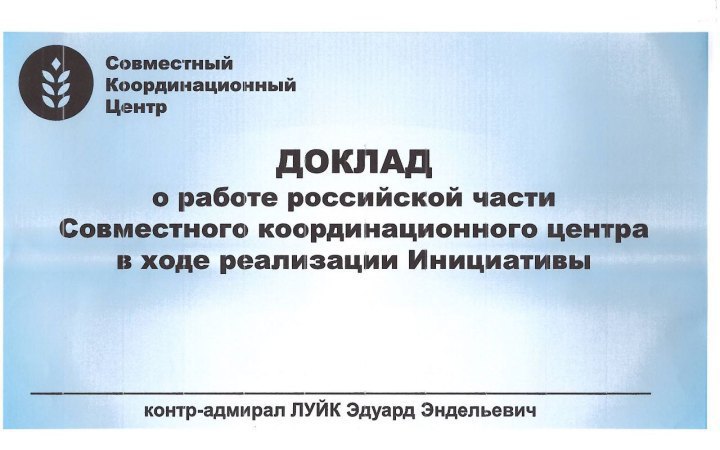Ukrainian intelligence has came into posession of a confidential report for the Kremlin leadership about the failure of the grain agreement.
This was reported by the Main Intelligence Directorate of the Defence Ministry of Ukraine.
They say that a private final report "about the work of the Russian part of the joint coordination centre during the implementation of the Initiative" was prepared for the top Russian military and political leadership. In general, the text of the document highlights the tricks that were used to hinder the implementation of the grain corridor and ultimately led to the final termination of the agreement.
According to the report, the main task of the so-called "joint coordination centre" was to make sure that as little Ukrainian grain as possible is exported under the Grain Agreement.
The document states: "The ships checking was also one of the key elements to moderate the uncontrolled growth of grain exports from Ukrainian ports. At the same time, the Russian inspectors worked in severe accordance with the developed methodical documents on the ship inspections. According to the results of the inspections, 46 vessels were eliminated from the Initiative, 303 vessels were restricted in mobility for 342 days."
Plan to disrupt the Grain Agreement was divided into several stages. At first, the participation of the Russia in the GA was suspended from 10.29.22 to 11.03.22 on the initiative of the Russian president. According to the document, this led to a downfall of grain export from 4.2 million in October to 2.6 in November. The next step was to limit the access to the Southern port, reduce the number of inspection teams (no more than two), and stop the grain carriers registration.
It is stated that this plan allowed Russians to "effectively restrain the number of ships headed for Ukrainian ports and significantly limit the food exports from Ukraine, that in general led to the loss about 20 million tons of cargo." Russians report that "the smallest amount of food exported from Ukrainian ports, 7.8 million tons, was realised on the third stage of the Initiative”(from 19 March to 17 July, 2023).
Special attention was drawn on the participation in World Food Program: "Ukrainians' attempts to use the Black Sea initiative to continue the so-called "Grain from Ukraine" program with the ships chartered under the World Food Program have been stopped. Registration of such vessels proceeded only after written commitments not to take part in such actions."
In conclusion, the authors of the Report say: "Next time, gained knowledge will allow to achieve a high level of efficiency in the shortest possible time".
So, if the Grain Agreement continues, the Russians will use all the gained "experience" to effectively fail it.
The document shows that all actions to disrupt the Grain Agreement are part of a single plan developed in advance. And the targeted shelling of the Ukrainian port is just another step in its implementation.
On 17 July, Russia decided not to continue the Grain Agreement. After that, they began shelling the grain infrastructure of southern Ukraine every day.
On the night of 23 July, Russia hit Odesa with missiles of various types — Calibers, Onyxes, Kh-22, Iskander-K and Iskander-M. Overall, 19 missiles were fired, nine were destroyed by the air defence forces. Apart from the church, the port infrastructure and at least six buildings were damaged. As a result of the attack, one person died, 22 were injured, among them four children. A 17-year-old is in intensive care in a serious condition.








